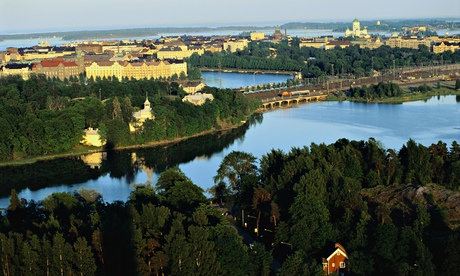
We live in an age of "networks not hierarchies", Labour policy chief Jon Cruddas told the RSA earlier this month. He described a new era of partnerships and participation between the public and government, and an end to the top-down, state-driven institutions of the last century.
How long this new world order takes to move from an aspiration to political reality is up for lively discussion, but acknowledging the disruption is the easy part. The Labour party was conceived, he said, in response to an era of mass production and a large and stable workforce; we are now a deindustrialised workforce shaped instead by fragmented technologies.
More challenging for most organisations is encouraging a new working culture, turning a typical resistance to change into an appetite for one. How does that happen? Most organisations of any scale have multiple layers of management and hierarchies, but much further along the same fault line of deconstructed hierarchies is an alternative, 1,500 miles away in Helsinki.
One experience stuck with me on my last visit, that of superstar mobile games firm Supercell. Helsinki is also home to Minecraft creators Mojang, Grand Cru of Supernauts fame and Angry Birds makers Rovio, and has a strong claim on the title of European games capital. But it's Supercell that has real fire in its belly after taking investment in October 2013 that valued it, at the time, at $3bn (£1.75bn). It now earns, according to Midia Research, $5m in revenue per day. Not bad for a company with little over 100 staff.
"I want to be the least powerful CEO in the world," Supercell's Ilkka Paananen said when I met him in the autumn. You might expect this in the famously egalitarian Nordic states but his point is that in the fiercely competitive games industry, Supercell has to be centred on the talent it recruits.
"Happier developers mean better games, so we have no vice-presidents or directors and very few management. We create the right environment for people and get out of the way," he said.
Crucially, its teams are small – Paananen thinks eight to 12 people is optimum for close working relationships, creativity and communication. The model balances those small, productive teams who have creative autonomy, with a brutal data-driven assessment where games that don't make the numbers will be killed off. Every employee is sent performance targets and data every morning.
Teams can scale up to 15 people as a game really takes off, to provide extra community managers for a large audience of gamers. But Paananen said even he doesn't have the authority to kill a game – and once they decide to launch a game in the usual testing ground in Canada, the power then shifts to the players. If the players don't respond well to a game, or a focus group slates it, it gets dumped.
While Supercell launches new mobile app games regularly, it usually kills most of them because they don't meet their targets. That approach means not being risk averse. "If there's no risk, "says Paananen, "there's no innovation, and if there's no innovation there are no hit games."
Paananen says that games is a people business (though it's hard to think of a business that isn't) but Supercell has the benefits of being a young business in a young industry, has – as one of a handful of lucky big-name companies – huge revenues, and has an obligation to attract developers who expect to be able to play. It is a games company, after all.
Something else Paananen said stuck with me too: about empowering those creative people. "I'd give all the power to the creative geniuses, put creative people front and centre and give them permission to fail." And creativity doesn't have to mean artistic people, but those in the business that are often best-equipped to meet change with imagination and resilience. The best strategy is not always the one that appears to have the most solid return on investment. Small teams, data-focused targets, experimentation, no middle management – it's a bold legacy business that takes on that model. And it's very far from the abstract concepts of the new social structures with which politicians are grappling. But there are visionary people urging us to rethink our place in a networked world.
The internet, Cruddas said, "can be used to rebalance power between citizens and the market, and between citizens and the state".
Labour, he says, will "share more power with people" – though in the times of networks over hierarchies, is it really Labour's power to share?

